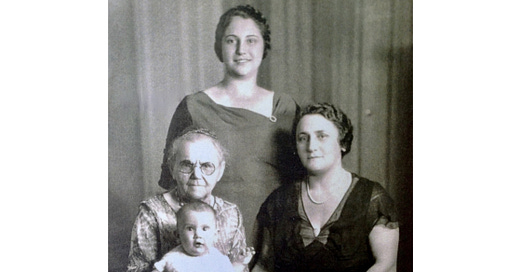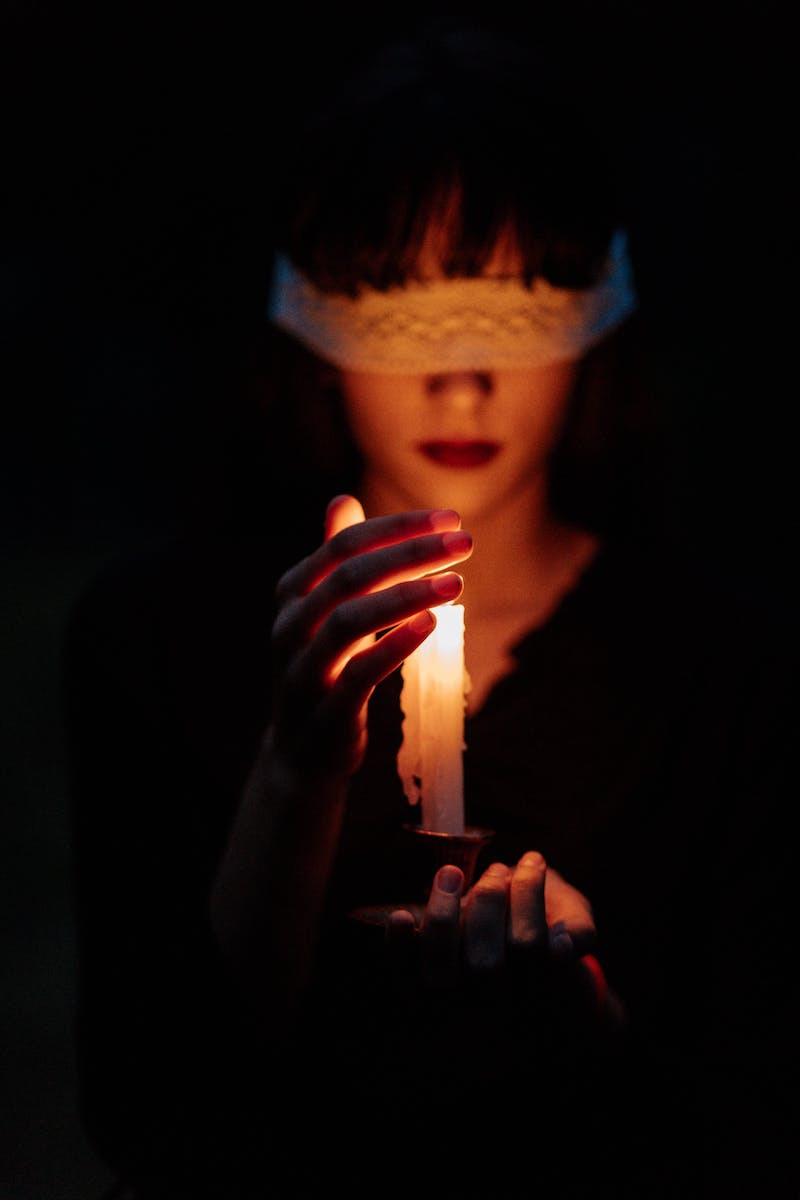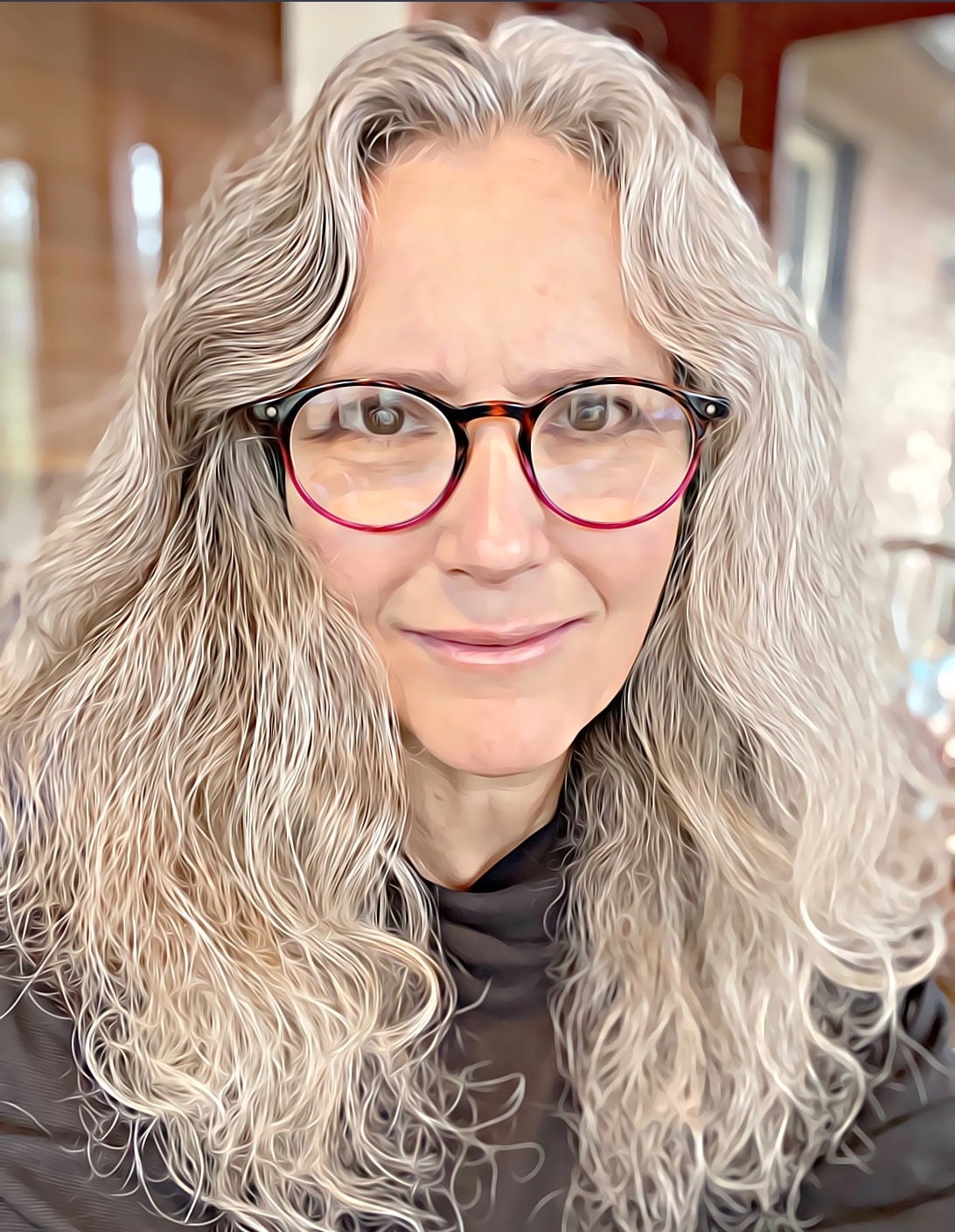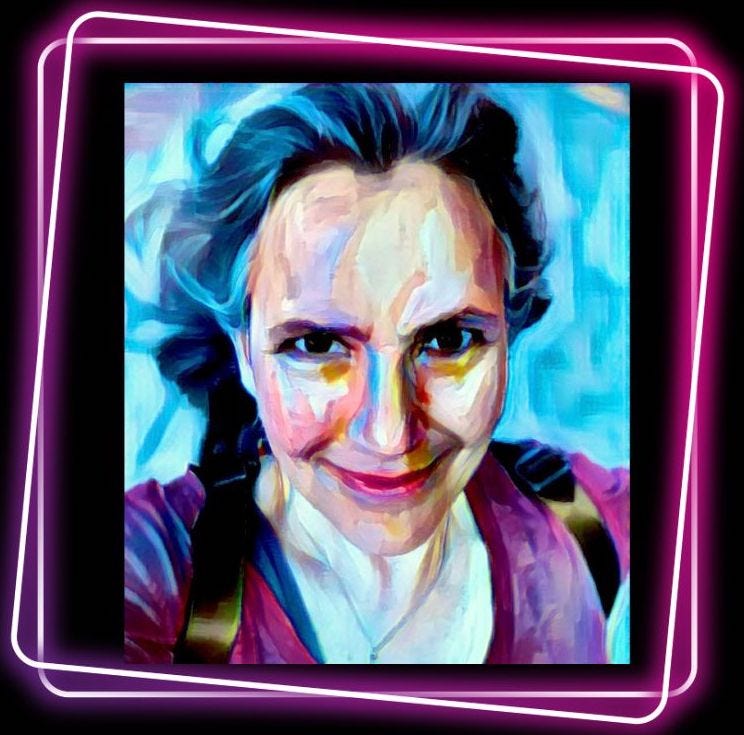Maiden, Mother, Crone.
I encounter this trinity everywhere I turn these days: books, t-shirts, tarot decks, figurines. Each facet represents a stage of a woman’s life. Maiden, the bud of spring, is nascent, emerging, vibrant with potential. Mother, the fertile creator of life, shows up in full flower, lush and abundant, nurturing and resilient. Crone represents craggy wisdom, hard-earned. She’s mysterious to others, turning within. Or something like that.
According to learnreligions.com, the Triple Goddess—a being who embodies these three archetypes—was first popularized by Robert Graves in his 1948 book The White Goddess and brought to a much wider audience by neopagan feminist authors Starhawk and Margot Adler in the late 1970s. The dramatic rise of paganism over the last five to ten years has made her ubiquitous.
This got me thinking. Obviously, not every woman becomes a mother. Those who don’t may reject the whole notion of this triptych or view the symbolism more abstractly. Likewise, as a fifty-seven-year-old woman moving away from the stage of life when motherhood was front and center, I sense a missing link.
My boys are 15 and 20. I’ll always be their mother, but they need less of me now. Still, I’m not yet crone. My energy burns brighter than ever. What, then, to call this moment?
I’m aware in a way I wasn’t when I was younger that my time on earth is finite. I’ve lost many I held dear, including my father, stepfather, and one of my three brothers. My mother, at 91, is fading. I belong now to the rising generation of elders.
Though there is at times an undercurrent of sorrow, this bone-deep sense of mortality does not depress me. It focuses me. It’s like a giant leaf blower blasting away the detritus of shit-that-doesn’t matter, clearing the deck so I can see what does. For me, that’s caring for friends, family, and community, and doing my best to be in right relationship with the wider family of humanity, the planet, and all non-human beings. And my creative work, which is, for me, both source and fulfillment.
I know I’m not alone in this fierce refocusing of energy. I see it again and again in my classes—women of a certain age with far fewer fucks to give. They’re done living to please others. Done putting everyone else’s needs before their own. Done fitting themselves into a template created by parents, spouses, or even children. Done being the perfect mothers and wives. Done being perfect, period. There’s no time for perfection. They’ve got things to do. Life to live.
Some time ago I read an interview with author Margaret Atwood. When asked what the main obstacle to her writing was, she said, “Interruptions.” When I read that, I envied her. My biggest obstacles were internal. Trouble getting myself to the table. Trouble concentrating. I longed to have such profound concentration that interruptions would be my primary obstacle.
These days I relate to Margaret. I never seem to have enough uninterrupted hours to write. I’m perpetually surprised by the figure of my teenage son appearing in the doorway of my sunroom cum office, requesting food. Even the arrival of my own hunger—that nervy DM from stomach to brain, feels like an intrusion.
It’s exciting. I love the trance-like state I enter when I’m so deeply absorbed in the spinning of words that I don’t want to stop. And while I don’t love the feeling of annoyance that arises when I have to stop, I’ll take it over the alternative.
(Don’t worry. I do feed my teenager. I don’t even get mad about it. Honestly, officer, he’s just naturally thin.)
I recently went on a date with a cool, creative, attractive person. We kissed a little, and I experienced a small frisson of connection. But the next morning, I woke up with a clear NO rising within me. The voice wasn’t whispering, it was shouting, I can’t do this. Finally it calmed down and the tone changed. Please, it said, don’t make me do this any more.
I thought of a story my wasband1 once told me about a profound meditation experience he had when he was young. He’d been meditating for hours when the Hindu sage Ramakrishna came to him, put a hand on his shoulder, and said, You don’t have to go to parties any more.
He told me about this experience early in our relationship, and I never forgot it. I asked him what he thought it meant. He thought it meant that he didn’t have to try to impress people, to put on a show for the sake of their good opinions. He didn’t have to look for fulfillment outside himself.
Reflecting on this, I heard a wise woman whisper, You don’t have to go on dates any more. Relief flooded through me.
I don’t think this means I’m done with romantic intimacy forever. Part of me still longs for that kind of human connection. But what it tells me, with absolute clarity, is that this is the time for me to dance with the muse.
The day before, I’d told my date that my wasband and I were very close but no longer a romantic couple.
“I am in an intense long-term relationship with my writing, though,” I said.
“Well,” he laughed, “if you decide to be poly, at least you know who your primary is.”
Perhaps the NO was the muse demanding monogamy, in a voice that brooked no argument. I don’t know about the next moment, but in this one, it’s to her I turn my face.
So what to call this moment, with its laser focus and ferocious lucidity, poised as it is between Mother and Crone?
I’m going with Warrior.
wasband = a husband from whom one is amicably separated
“I write entirely to find out what I’m thinking, what I’m looking at, what I see and what it means. What I want and what I fear,” wrote Joan Didion. Join me and a supportive circle of peers in exploring your life through words. Winter sessions of Off-Leash Writing Workshops start January 11. There’s currently space in the Memoir, Fiction, & Personal Essay Workshop, starting January 30.









I! Love! This! So! Much!!!
Intuition is your Wise Woman. The three stages that are for all to see are the external phases of a female’s lifetime. However, there are four internal phases, each corresponding to the four seasons, as well as to four phases of the moon. The third, the one before Crone and after Mother, is the Wild Woman - a woman in her autumn, when she is the waning Moon, when she is releasing and letting go of that which no longer serves, when she wants to howl at the moon, and kick herself out of the cage of patriarchy - yes, like a Warrior!
For more, I recommend the book, “Unleash Her Wild” by Akaiy’ha.